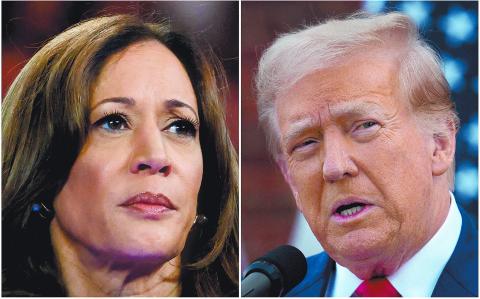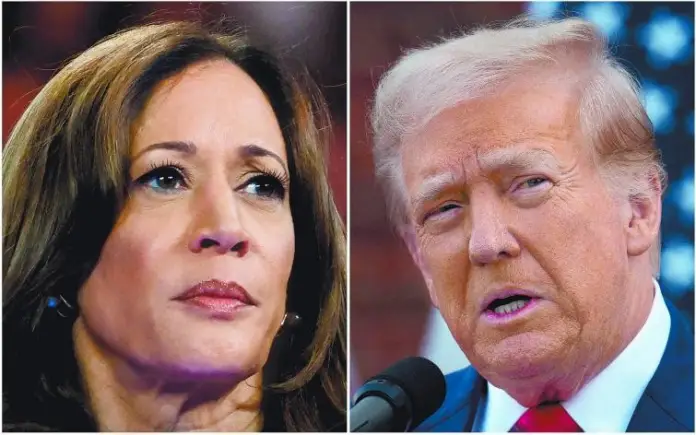
The privileged treatment of state energy companies established by the recently approved constitutional reform on strategic sectors, to the detriment of private investors, may “cost Mexico dearly” in the revision of the Mexico-United States-Canada Treaty (T-MEC) in 2026, since the counterparties could demand other advantages in exchange, analysts highlighted.
“That will be an issue in these talks and more so with a counterparty such as Donald Trump, if he wins the presidential election. They could say ‘I can give it to you’ (the differential treatment of investments in energy), but I will charge you dearly, because at this moment the complete opening is already taken for granted,” said César Hernández, managing partner of the Publius law firm.
The reform approved in the first minutes of this Wednesday by the Mexican Senate established changes to articles 25, 27 and 28 of the constitution and partially reverses the market opening of the 2013 reform.
It does not prevent private companies from continuing to participate in the activities of electricity generation and commercialization, but now it sets limits on them since “in no case will they have precedence over the public company of the State,” according to the new text of constitutional article 27.
In the review of the T-MEC in 2026, Mexico will arrive with these changes under its arm, when the treaty was originally negotiated with the country’s commitment to a complete opening in the markets of generation, transmission, distribution and supply of electricity, as well as a non-discriminatory treatment of investors compared to state companies.
According to César Hernández, if Mexico wanted its new legal framework in energy to be accepted within the T-MEC, the country would have to give in on other issues of interest to its counterparts.
“And who is going to pay for it? The berry export industry, or automobiles, or the steel industry? Compensation for the United States for the perceived loss it is receiving in the energy sector has to come from somewhere,” he commented.
Points of conflict with the T-MEC
But not only the mandate of “prevalence” of state-owned companies in the new energy reform would clash with what is established by the T-MEC. Regulatory discrimination would be another source of concern, says Víctor Ramírez, an energy specialist.
Because the reform to constitutional article 28 establishes that it will be “the public company of the State that is established” that will be in charge of planning and control of the national electrical system.
If that company is the CFE, a conflict of interest would arise, since on the one hand it would be a competitor in the market, but it would also carry out tasks of planning and operation of the electrical network, in which it could impose non-competitive criteria for the rest of the market.
“For the purposes of the T-MEC, there would be a problem because who you are having as an arbitrator, as an operator of the system, is a company that is part of the competition. This would be a complication for the USMCA or other trade agreements such as the Trans-Pacific Partnership,” Ramírez said.
According to an analysis by the Mexican Institute for Competitiveness, the energy reform approved this week conflicts with at least five chapters of the USMCA.
Among these is Chapter 14, on Investment, which contains the so-called “ratchet clause” which establishes that “if a country opens its economy by allowing more trade or foreign investment, it will not be able to reverse those measures in the future or close sectors previously open to private participation.”
Also of importance is Chapter 22, which regulates state-owned companies. It states that state-owned companies must operate under commercial criteria and that the administrative bodies that regulate state-owned companies (including those in the energy sector) must be impartial.
A point of tension here is that in the change from productive to public companies, the new constitutional text exempts them from the application of antitrust legislation, which places them in an advantageous position with respect to private companies.
“Respecting the disciplines of the treaties and instruments to which Mexico is a party is not only a legal issue, but also for the country’s competitiveness, since these will only serve to expand the country’s trade and investment if a credible commitment to its disciplines is demonstrated,” said the IMCO.
Some points of conflict of the energy reform with the T-MEC
Chapter 14 (Investment):
- The “ratchet clause” included in the T-MEC establishes that, if a country opens its economy allowing more trade or foreign investment, it will not be able to reverse those measures in the future and the reform partially reverses the opening of the electricity sector.
Chapter 22 (State-owned companies):
This chapter establishes that state-owned companies must operate under commercial criteria. The reform frees public companies from antitrust legislation.
Chapter 32 (Exceptions and general provisions):
- Mexico undertakes to grant the least restrictive measures regarding investment, cross-border trade in services, and state-owned companies and designated monopolies. The energy sector is fully incorporated into the TIPAT, ratified prior to the USMCA, so it is an integral part of this treaty.
Source: eleconomista






